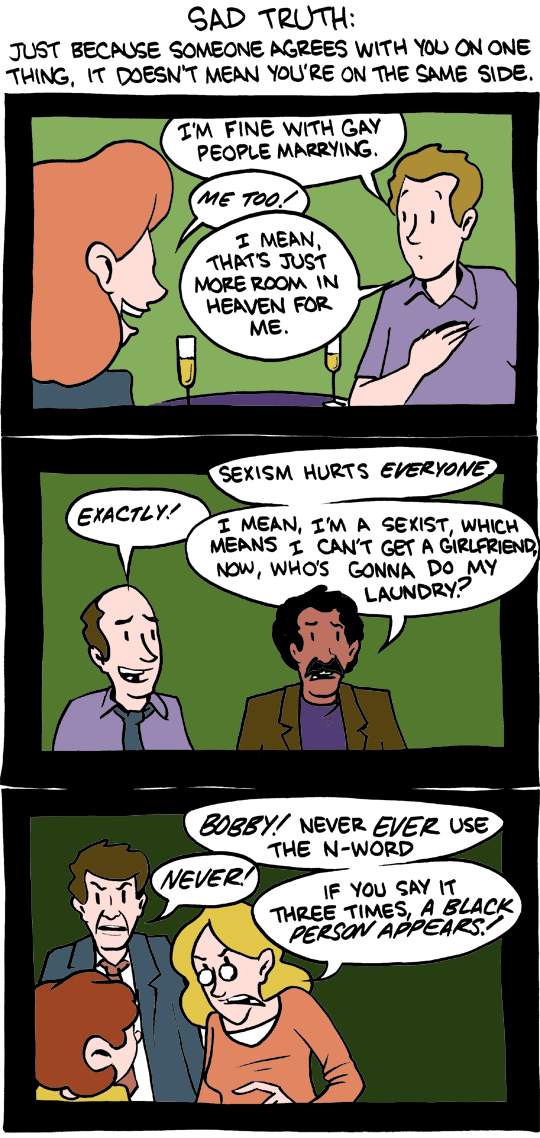The movie raises questions about everything from the (very American) focus on upward mobility and socioeconomics to points on welfare and the world's obsession with porn and the twisted ways we relate to each other.
 | |
| There are actually people like this. Not US, of course. We forward-thinking college students would never DREAM of forcing our views on others. |
The quirkiness of this movie focuses mainly on Christian Bale's character, a serial killer who believes that the human race is selfish and focused on making as much money as possible before they die. Get you can, and figure out a way to enjoy life before you kick the bucket. The film is most certainly postmodern. It is so highly stylized that a viewer is always a little on the outside of whatever is happening with the characters. Bale's characters' voice-overs help with that. We can never be fully involved with the characters because we are constantly being pushed to a view them from a distance. We are never inside the killer's head- we get his perspective of the world and are left to draw our own conclusions. In our Barker book (page 200 in the chapter "Enter Postmodernism"... I'm still not entirely certain how to cite the damn thing), there are a few bullet points on postmodern structure:
- a sense of the fragmentary, ambiguous and uncertain nature of living
- an awareness of the centrality of contingency
- a recognition of cultural difference
- an acceleration in the pace of living
I feel that postmodernism is one of this film's greatest strengths. Without the postmodernist structure, we wouldn't have directors like the Coen Brothers, Martin Scorsese and Quentin Tarantino. Authors like Mark Danielewski (who wrote the terrifyingly excellent House of Leaves). We live in a society that will phrase most things with an ironic sneer, and sarcasm has become the normative way of talking. This movie takes a little slice of this and projects it into the mind of madman with a warped view of how to take care of business while still living in a way that keeps his motivations hidden from the people around him.
Haven't we all had moments of wanting to wipe the smirk off of someone's face? Who doesn't want to feel smug and satisfied while a rival or enemy squirms? It's just that most of us won't do it with a fireman's axe.
 | |
| we all know what's coming next |
Listen: "It's Hip to be Square" by Huey Lewis and the News. Yup.
Watch: There are plenty of shows that fall under the category of "postmodern" but the best is probably 30 Rock. A comedy that isn't self-referential, sarcastic, fast-paced, and even fourth-wall breaking. Not to mention well-written and absolutely hilarious.
No comments:
Post a Comment